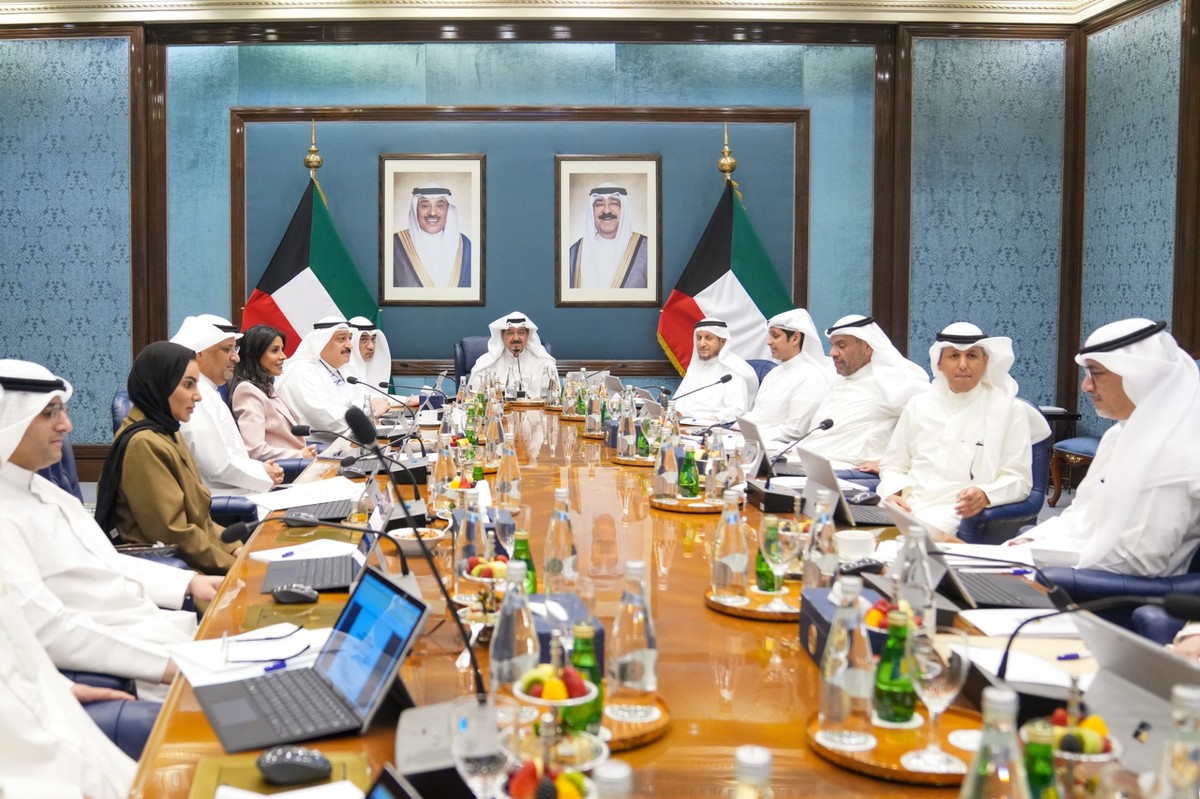05/06/2025
05/06/2025

KUWAIT CITY, June 5: Minister of Education Sayed Jalal Al-Tabtabaei praised the Cabinet’s approval on Wednesday of a draft bill amending the Penal Code and criminalizing cheating and exam leaks. He called the legal amendments “a turning point” for educational justice. He expressed gratitude to His Highness the Prime Minister Sheikh Ahmad Abdullah Al-Ahmad Al- Sabah and other Cabinet members for their roles in this development, which reflects the political leadership’s commitment to safeguarding the futures of students. The draft law explicitly outlaws the printing, selling, or leaking of exam questions and answers for intermediate and secondary schools, mainly when intended to facilitate cheating or undermine the examination process. Al-Tabtabaei emphasized that such actions threaten Kuwait’s educational reputation and that legal action would be taken against offenders. The Cabinet’s approved amendments add two articles to the Penal Code: Article 259 bis, which punishes leaking exam materials with imprisonment of up to five years and fines ranging from 1,000 to 5,000 dinars, and Article 259 bis (a), which penalizes altering exam answers or grades with up to seven years in prison and fines between 5,000 and 10,000 dinars. This initiative aims to protect the integrity of education and ensure fair assessments for all students.
Meanwhile, the Kuwaiti Council of Ministers, chaired by His Highness the Prime Minister Sheikh Ahmad Abdullah Al-Ahmad Al-Sabah, convened its weekly session on Wednesday at Bayan Palace, reviewing significant local, regional, and international developments while approving major legal and institutional reforms.

At the outset, the Cabinet extended Eid Al-Adha greetings to His Highness the Amir Sheikh Meshal Al-Ahmad Al-Jaber Al-Sabah, His Highness the Crown Prince Sheikh Sabah Khaled Al-Hamad Al-Sabah, and the people and residents of Kuwait. It also congratulated the Crown Prince on the first anniversary of assuming office, praising his national achievements and leadership.
As part of its legislative agenda, the Cabinet approved two draft decree-laws. The first introduces Articles 259 bis and 259 bis (A) to Penal Code No. 16 of 1960, criminalizing acts related to cheating and manipulation in intermediate and secondary school exams. Violations are punishable by imprisonment of up to seven years and fines ranging from KD 1,000 to KD 10,000.
The second draft law amends Judicial Fees Law No. 17 of 1973, aiming to discourage frivolous lawsuits and promote alternative dispute resolution methods such as arbitration and conciliation. These measures seek to preserve the integrity of the educational system and improve the effectiveness of the judiciary.
The Cabinet commended the recent speech delivered by His Highness the Crown Prince at the Second GCC–ASEAN Summit in Kuala Lumpur, where he represented His Highness the Amir in his capacity as President of the Gulf Cooperation Council. In his address, His Highness emphasized the importance of strengthening multilateral cooperation and building strategic partnerships rooted in mutual respect, sustainable development, and integration.
Highlighting the combined economic strength of the GCC and ASEAN — with a total GDP nearing USD 6 trillion — His Highness called for enhanced cooperation in fields such as artificial intelligence, cybersecurity, and food security, especially through sustainable agricultural investment.
The Cabinet also praised the Crown Prince’s participation in the GCC–ASEAN–China Tripartite Summit, where he welcomed the launch of the 2023–2027 strategic dialogue action plan. The plan outlines collaboration across sectors including renewable energy, education, health, technology, and scientific research.
The Cabinet reviewed the results of the Crown Prince’s official visit to Japan from May 28 to 31. During the visit, His Highness met with Emperor Naruhito, Crown Prince Fumihito, and Prime Minister Shigeru Ishiba to discuss elevating bilateral ties to a strategic partnership.
Minister of Information, Culture, and State Minister for Youth Affairs Abdulrahman Al-Mutairi presented a detailed report on the Crown Prince’s visit to Kuwait’s pavilion at Expo 2025 in Osaka. Accompanied by Minister of Foreign Affairs Abdullah Ali Al-Yahya, His Highness toured the pavilion, which showcases Kuwait’s achievements in economy, energy, environment, education, and cultural heritage. He expressed appreciation for the organizers’ efforts in presenting Kuwait’s identity to the global audience.
The Cabinet also discussed the outcomes of the recent official visit by Syrian President Ahmad Al-Shara. The talks, chaired by His Highness the Amir on the Kuwaiti side and President Al-Shara on the Syrian side, focused on enhancing bilateral cooperation across various sectors and addressing the latest developments in Syria. Both parties emphasized the need for intensified international efforts to ensure Syria’s sovereignty, security, and stability.
Additionally, the Cabinet reviewed high-level visits from the leaders of Qatar and the United Arab Emirates. Talks with Qatari Prime Minister Sheikh Mohammed bin Abdulrahman Al-Thani and UAE Deputy Prime Minister Sheikh Mansour bin Zayed Al Nahyan highlighted the strength of fraternal relations. These meetings led to the signing of several memoranda of understanding in sectors such as energy, advanced technology, education, law, health, investment, and cybersecurity.
The Council received a presentation from Minister of Electricity, Water, and Renewable Energy Dr. Subaih Abdulaziz Al-Mukhaizeem, who outlined progress on several strategic infrastructure projects. These include the Shagaya and Abdaliyah Renewable Energy Projects, Az-Zour North Phases II and III, Khairan and Nuwaiseeb Phase I, and the Subiya Plant expansion phases. Combined, these projects will add 14,050 megawatts of electricity and 228 million gallons of daily water production. The Cabinet commended the ministry's efforts and stressed the importance of addressing implementation challenges to meet the nation’s growing energy demands.
The session concluded with the Cabinet approving several items on the agenda and referring others to specialized ministerial committees for further review and action. Through these comprehensive discussions and decisions, the Cabinet reaffirmed its commitment to national development, regional cooperation, and institutional integrity.


